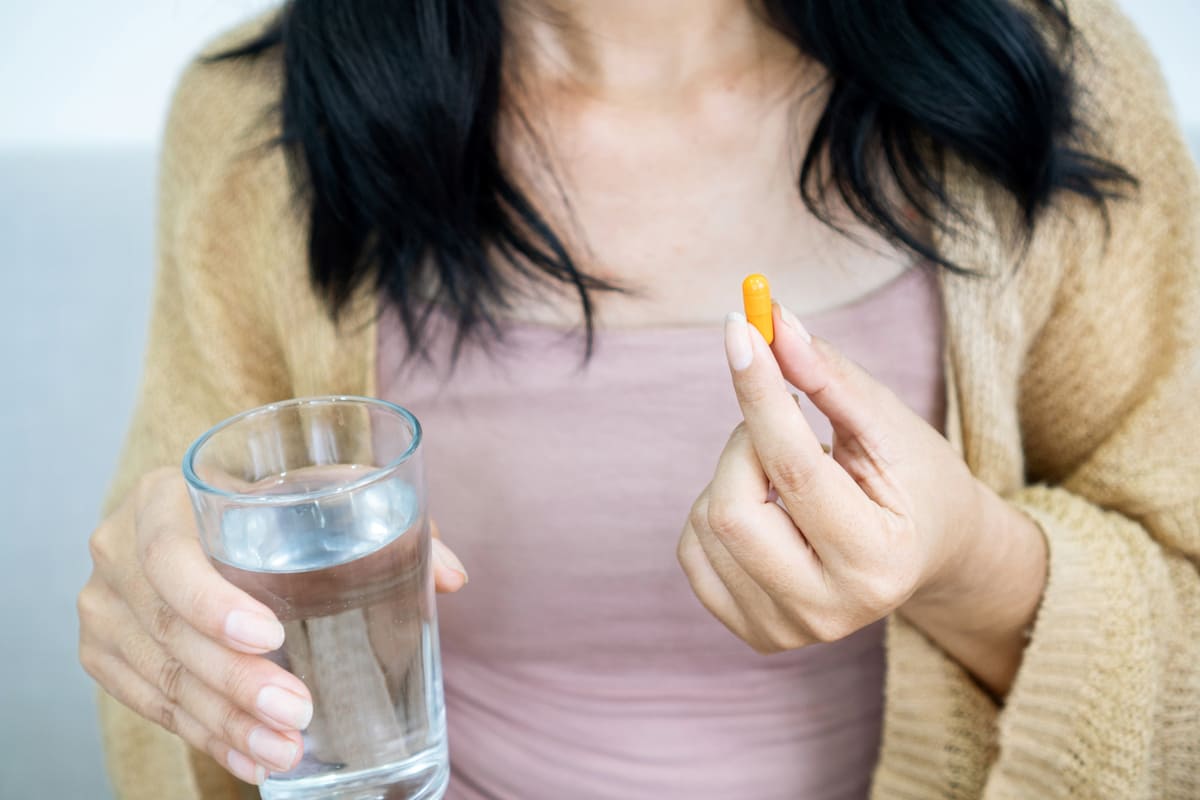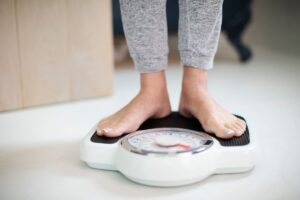We all strive to eat a balanced diet filled with fresh produce, lean proteins, and healthy fats. But even with the best intentions, it can be surprisingly challenging to meet all of our daily nutritional needs. As we age, our bodies become less efficient at absorbing and using certain vitamins and minerals. This can lead to subtle—yet significant—health issues that affect our energy, mood, bone health, and overall well-being.
Among the 13 essential vitamins our bodies require—A, C, D, E, K, and the B vitamins—vitamin D stands out as a critical nutrient for healthy aging. In particular, vitamin D3 plays a key role in maintaining strong bones, supporting immune function, and even boosting mood. Unfortunately, deficiencies are more common than you might think, especially for people over 50.
Why Vitamin D Matters
Vitamin D isn’t just another nutrient on your supplement shelf—it’s essential for several vital processes in your body. Its most well-known role is helping your body absorb calcium, which keeps your bones and teeth strong. Without enough vitamin D, even a calcium-rich diet won’t protect you from bone loss, fractures, or osteoporosis.
In addition to skeletal health, vitamin D contributes to:
- Immune support: It helps your immune system respond effectively, reducing your risk of certain infections.
- Muscle function: Adequate vitamin D supports muscle strength, reducing fall risk as you age.
- Mood regulation: Low vitamin D levels have been linked to depression and cognitive decline.
- Inflammation control: It helps modulate inflammation, which is important in preventing chronic disease.
How Much Vitamin D Do You Need?
According to WebMD, the general recommendations are:
- Adults up to age 70: At least 600 IU (International Units) per day
- Adults over 70: At least 800 IU per day
- Some experts suggest that adults over 70 may benefit from up to 1,000 IU daily
If you’re over 65, it’s a good idea to get a blood test and discuss your results with your doctor. Your healthcare provider can recommend the ideal dosage based on your specific needs, overall health, and any medications you take.
Why Getting Vitamin D Becomes Harder With Age
When we’re younger, our bodies are more efficient at converting sunlight into vitamin D. However, as we age, our skin produces vitamin D less effectively. Compounding the issue, many of us are advised to limit sun exposure to reduce the risk of skin cancer and premature aging.
This means relying solely on sunlight for vitamin D isn’t a realistic—or safe—option for most people. Diet and supplementation often become necessary to meet your daily needs.
Dietary Sources of Vitamin D
If you want to boost your vitamin D intake naturally, adding more vitamin D-rich foods to your meals is a simple way to start. Some of the best dietary sources include:
- Fortified dairy products: Milk, yogurt, and cheese often have added vitamin D
- Egg yolks
- Fatty fish: Swordfish, mackerel, salmon, and trout are all excellent options
- Fortified plant-based alternatives: Soy milk, almond milk, and certain breakfast cereals
While these foods can help, even a nutrient-rich diet may not provide enough vitamin D—especially if you have limited sun exposure or absorption issues.
The Role of Supplements
For many adults over 50, vitamin D supplements are an effective way to maintain healthy levels. Vitamin D3 (cholecalciferol) is often preferred because it’s the form your body produces naturally when exposed to sunlight and is generally more effective at raising blood levels than vitamin D2.
Before starting any supplement, talk to your doctor. Taking too much vitamin D can lead to a condition called hypercalcemia—an excess of calcium in the blood—which can cause nausea, weakness, and kidney problems. Your doctor can help determine the safest dosage and form for you.
Signs You Might Not Be Getting Enough Vitamin D
Vitamin D deficiency can be subtle at first, but over time, it can lead to serious health problems. Common symptoms and signs include:
- Bone pain or tenderness
- Frequent illnesses or slow healing
- Fatigue and low energy
- Muscle weakness
- Mood changes, including depression
- Cognitive decline or memory issues
- Osteoporosis or frequent fractures
If you notice these symptoms—especially in combination—it’s worth getting your vitamin D levels checked.
Who Is Most at Risk for Vitamin D Deficiency?
Certain groups are more likely to have low vitamin D levels, including:
- Adults over 50, particularly over 70
- People with limited sun exposure
- Those with darker skin tones (as melanin reduces vitamin D production)
- Individuals with digestive disorders that affect absorption, such as Crohn’s disease or celiac disease
- People who are overweight or obese (vitamin D is fat-soluble and can get “trapped” in body fat)
Aging Well With Vitamin D
Strong bones, a healthy immune system, and a positive mood are essential for living well as we age—and vitamin D plays a part in all of these. While sunlight and diet can help, many older adults will benefit from mindful supplementation.
The key is awareness. By knowing how much you need, recognizing the signs of deficiency, and speaking openly with your doctor, you can take proactive steps to protect your health.
Bottom line: Vitamin D is a small nutrient with a big impact. Whether you get it from the sun, food, or supplements, ensuring you have enough in your system is one of the simplest ways to support your body, mind, and bones as you age.
Best Organic Vitamin D3 Supplements for Optimal Health
Disclosure: This post contains affiliate links.
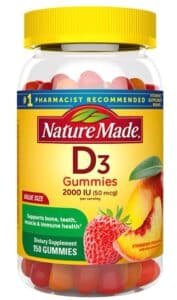
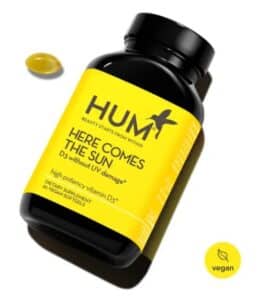
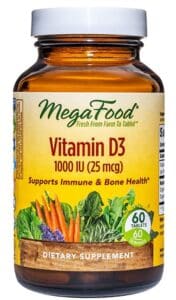
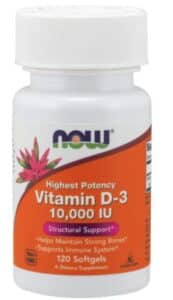
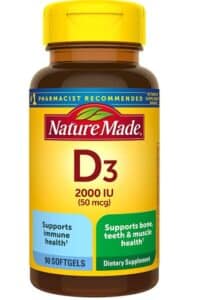
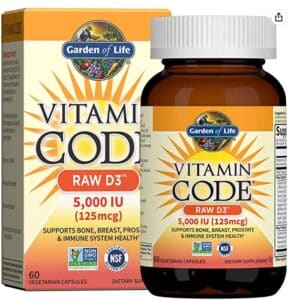
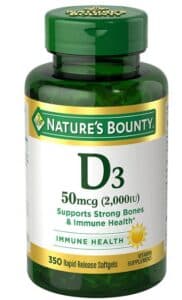
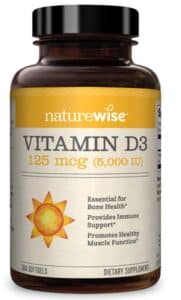
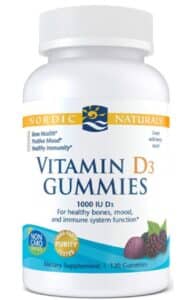
Whether you prefer a pill, capsule, tablet, or liquid option, there are options here for everyone. We also tried to cover a range of dosages so you can ensure you’re getting enough but not too much.
Read Next:
6 Powerful Vitamins for Women 50+

